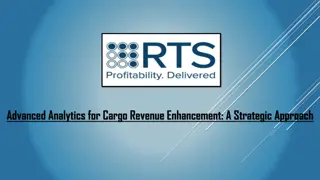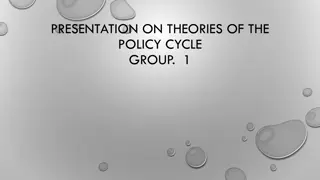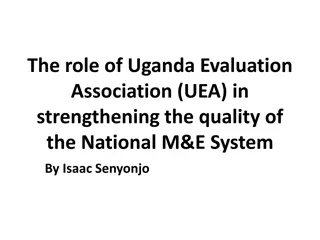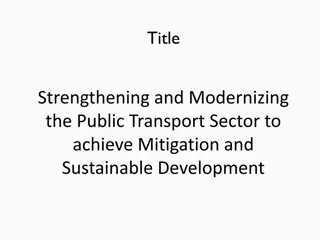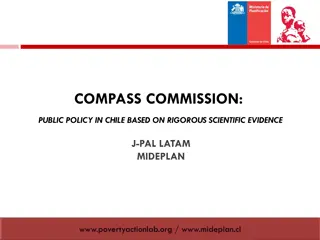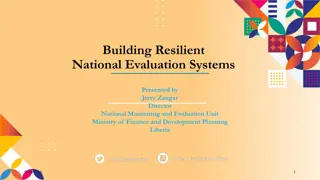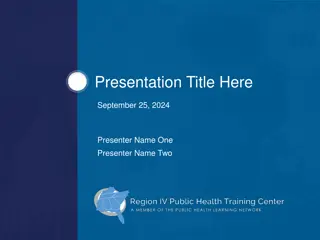Strengthening Evaluation Systems for Public Policy Enhancement
Dr. Henry Morales discusses the challenges in public policy evaluation systems, highlighting the need for multi-stakeholder involvement, adapting to local contexts, and enhancing democratic evaluation cultures. The presentation emphasizes the importance of transparency, impartiality, and building national capacity within evaluation frameworks to ensure effectiveness and accountability.
Download Presentation

Please find below an Image/Link to download the presentation.
The content on the website is provided AS IS for your information and personal use only. It may not be sold, licensed, or shared on other websites without obtaining consent from the author. Download presentation by click this link. If you encounter any issues during the download, it is possible that the publisher has removed the file from their server.
E N D
Presentation Transcript
MULTISTAKEHOLDER AND MULTISTAKEHOLDER AND MULTISYSTEM EVALUATION SYSTEMS MULTISYSTEM EVALUATION SYSTEMS AND PUBLIC POLICY AND PUBLIC POLICY Speaker: Dr. Henry Morales
Wide variety of approaches on Public Policy and Evaluation Systems Few country/local initiatives Not adapted to the context of each country
Linkage: State - Public Policy - Evaluation Systems Weak institutional framework Lack of democratic evaluation culture Lack of multi-system vision (public policy, national accounting, other information)
ENABLING SCENARIOS FOR THE OPERATION OF AN ENABLING SCENARIOS FOR THE OPERATION OF AN EVALUATION SYSTEM EVALUATION SYSTEM It should be seen as part of the instruments that ensure a democratic system It should go beyond the control and effectiveness of public management
CONTINUED 1 An evaluation system should be preceded by a sound system of public policy. An evaluation should be conceived as relevant multi- stakeholder responsibility It should be supported by the State and relevant authorities, political parties, and citizens in general.
CONTINUED 2 CONTINUED 2 An evaluation system requires: transparency in public management. Impartiality, without conflict of political interests. Non-dependence on external elements. Building of national capacity.
CONTINUED 4 CONTINUED 4 A systemic process requires: an institutional framework. Information (ex ante, during, ex post, accountability); Quality indicators (on the process and the system itself).
CONTINUED 5 CONTINUED 5 Every evaluation system should be set up accounting for all stakeholders and sectors of society-State. Procedures and methodologies should be highly participative and democratic.
CONCLUSIONS CONCLUSIONS Citizens increasingly claim the democratization of States and the effectiveness of their institutions. A systemic approach (policy, evaluation) will create political awareness and sustainable and viable processes for the implementation of public policies. Political will is crucial for the effectiveness of a systemic approach to evaluation.




